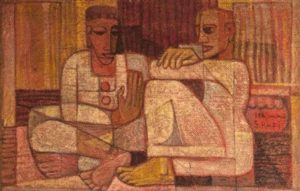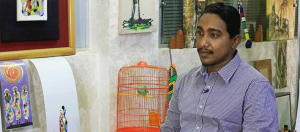The Sheikh Zayed bin Sultan Al Nahyan Centre for Arabic Language and Islamic Studies is a cultural beacon in the People’s Republic of China, which is well known to knowledge seekers in Beijing.
The centre was established in 1994 with a grant provided by the Founding Father, the late Sheikh Zayed bin Sultan Al Nahyan during his historic visit to China in 1990. Spanning over 14 million square kilometres, the centre aims to promote Arabic and Islamic civilisations and teach the Arabic language to Chinese people.
An Emirati media delegation recently visited the centre and met with its Director Dr. Choy Ching, and some of the students, to learn about the subjects it offers, the history of the centre, as well as its services and role in promoting the Arabic language and Islam in China and neighbouring countries.
Dr. Ching said that since its establishment, the institution had trained over 1,000 students from China, North Korea, South Korea and members of the Arab community in China, while noting that it offers bachelors, masters and PhD degrees in the Arabic language, and has 17 professors, 15 from China and two from Syria.
He added that Chinese-Arab relations have witnessed overall progress while emphasising that the planned visit of President Xi Jinping to the UAE on Thursday will be an incentive to reinforce these relations. He also pointed out that the centre is a branch of the Beijing Foreign Studies University, which is the largest university that offers courses on languages and cultures and teaches over 90 foreign languages, while noting that it was established in 1941 during the Chinese Revolution.
Dr. Ching further added that in 2012, the centre was maintained and His Highness Sheikh Mohamed bin Zayed Al Nahyan, Crown Prince of Abu Dhabi and Deputy Supreme Commander of the UAE Armed Forces, attended the reopening ceremony in March 2012, during his visit to Beijing.
Most of the centre’s graduates now work in prominent positions related to the Arabic language and the exchange of Chinese and Arabic cultures, as well as in diplomatic, economic and cultural sectors and Arabic speaking media, he said.
Dr. Ching said that the centre does not need to be promoted to attract students, since it is the first choice for many due to its reputation. He highlighted the fact that many students apply every year to study Arabic language and learn about Islamic civilisation.
He added that the cost of studying at the centre is up to US$1,000, which covers housing and academic services.
Dr. Ching noted that the centre and many universities in the Arab world, including Zayed University, UAE University in Al Ain, the Mohammed V University in Morocco, Ain Shams University in Cairo, the University of Jordan, the Lebanese University and Sultan Qaboos University, are currently running exchange programmes.
He further noted that Chinese students admire the Arabic language and are keen to learn about Islam, especially Chinese Muslims, and the Arab world is a fantasy to them, as they have read stories, such as those from the “One Thousand and One Nights.” He added that the centre’s students are more likely to get job opportunities than their peers from other universities.
He also pointed out that the Arabic language contains more treasures than any other language. He also revealed that he has translated Arab poetry into the Chinese language.
He explained that that centre’s teachers draft their own curriculums not only for students of the centre, but also for other colleges that teach the Arabic language in China, which total 50.
The centre’s students know many facts about Sheikh Zayed and appreciate him, not only because he helped to establish the centre, but also because he deserves this appreciation and had successfully promoted the culture of tolerance and compassion, he further explained while pointing out that the centre recently celebrated the centennial birth anniversary of Sheikh Zayed.
WAM




